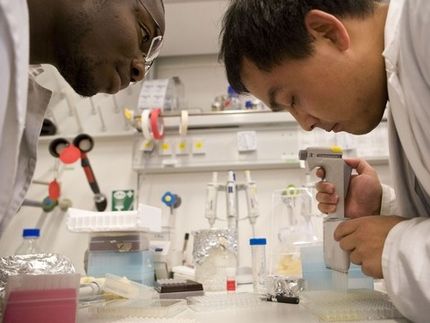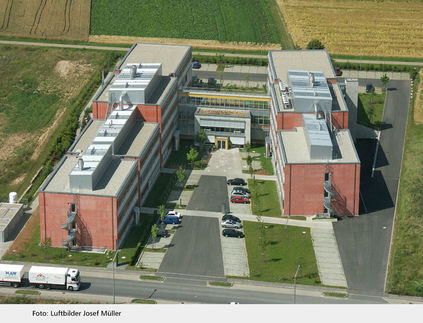Focus on Creating a Knowledge Based Economy Ensures Increased Funding for Life Sciences
European Commissions Framework 6 Programme (FP6) Sets Thematic Priority for Life Sciences
Anzeigen
Given the rapid advances in biological sciences, the European Commission (EC) under its framework 6 programme (FP6) has set a strategic thematic priority for life sciences along with biotechnology and health. While this is expected to significantly increase the fund flow for life sciences, attention has also been paid to augmenting the funding volume for small and medium enterprises in order to enhance knowledge transfer partnerships. As Europe strives to achieve global competency in the areas of Life Science, these initiatives could prove instrumental in building a competitive, knowledge-based economy in the near future.
In reinforcing its commitment to the European research sector, the EC has added two new instruments under its FP6 programme - the integrated projects and networks of excellence.
The main advantage that FP6 carries over the earlier frameworks is that there are a multitude of differentiated areas that can be implemented using these proposed instruments.
Integrated projects aim at generating the knowledge required to implement priority themes and thus help in increasing Europe's prowess in the global life sciences arena. Under these projects, research activities address the whole research spectrum from basic to applied research and will bring together the necessary critical mass of activities, expertise, and resources to achieve objective-driven research. On the other hand, networks of excellence are aimed at amalgamating and coordinating the various activities of network partners, thereby creating virtual centres of excellence.
"A major trend in life sciences funding is the interface of cross-council programmes that are adding a new dimension to biological sciences through a multitude of contributions from various councils and charities towards proteomics and post-genomics," notes Frost & Sullivan (http://healthcare.frost.com) Healthcare Analyst Charanya Ramachandran " Major funding bodies including the EC have allotted adequate portions towards research intensive areas and governments are constantly working to enhance technical innovation and bring in more university-business collaborations."
In addressing the fragmentation in European life sciences research funding, there is a clear strategy being devised towards incorporating a European Research Council (ERC). Although this organisation will truly be pan-European, it may not seem overly attractive to some regional governments as it may bring in the need to adopt several complementary approaches and also result in projects being accorded a non-essential priority at the national level.
However, respondent feedback suggests that the ERC should be able to channel funds more efficiently into new fast developing research areas. This will help provide a new component of funding based purely on competition between leading researchers and their teams, thereby complementing the efforts of national research councils (NRCs) and regional research funding institutions.
While in the United Kingdom genomics, proteomics, and systems biology initiatives are the main thematic priorities in the current life sciences budget, disease genomics is garnering a major volume of the total genomic funding in Germany. In France, public research bodies carry out most of the research in collaboration with universities and other institutes and the concept of genopole and genhomme networks have been a great interface to bring together small and medium sized enterprises (SMEs).
The average spending on Lifesciences under the Framework 6 Programme (including fundamental research and application of genomics to combat diseases) in 2003 was worth about EUR 761.0 million, and accounted for 67.4 per cent of the total European life sciences funding expenditure for that year. In continuance with the positive upturn in funding, this sector is expected to account for about 73.1 per cent of the total funding in 2005. The overall estimated budget that has been indicated on the life science roadmap under the FP6 will be worth EUR 2,264.0 million during the period 2003-2006.The total public lifesciences funding for the three geographies considered in the research study (United Kingdom, France and Germany) for 2005 has been estimated to be around EUR 5794 million.
"The need for a more conducive climate for high-enabling technologies like comparative genomics and proteomics is encouraged as they essentially represent the strategic motor for furthering economic development in Europe," says Ms. Ramachandran. "Budgetary increments along with supportive research policies will be a major driver in propelling life sciences research forward and help create a knowledge-based economy by 2010."
If you are interested in a virtual brochure, which provides manufacturers, end-users, and other industry participants an overview of the latest analysis of the Strategic Analysis of Life Sciences funding in Europe 2005(Phase 1) (B646-55), please use the 'Contact' botton below.



























































